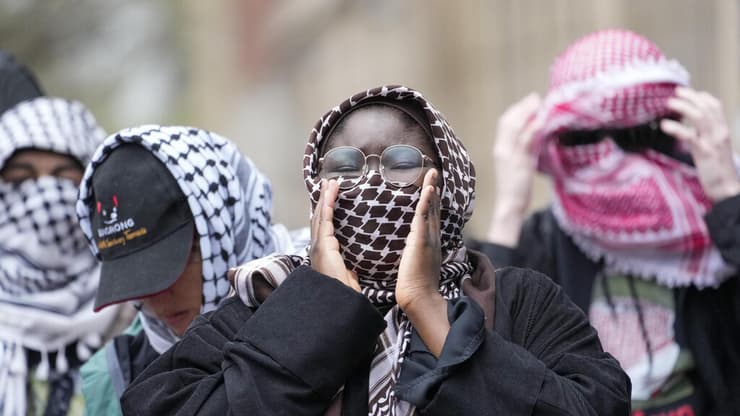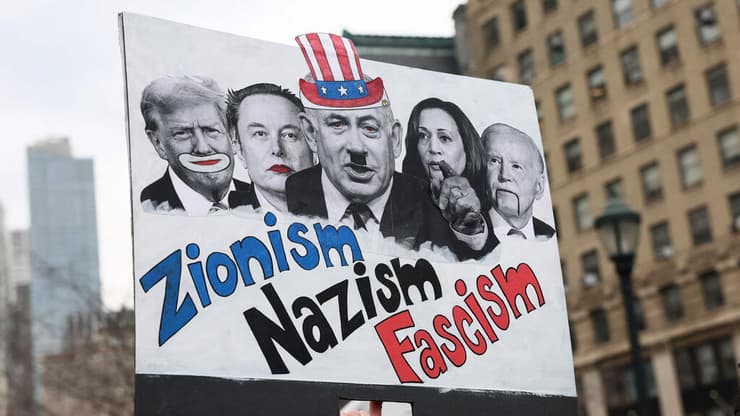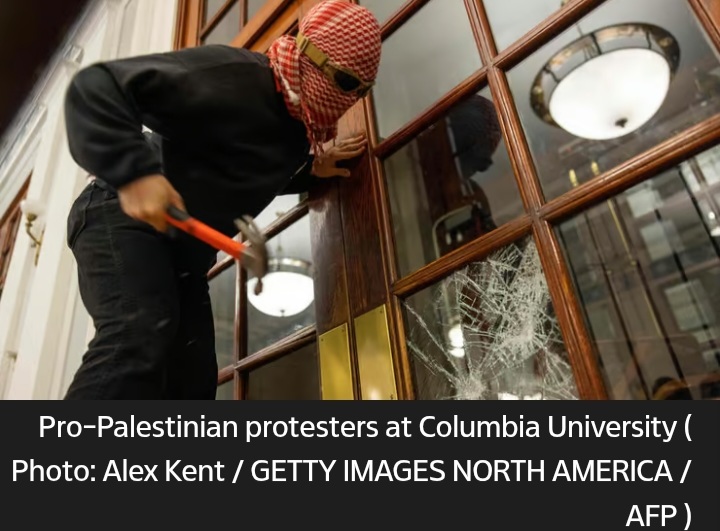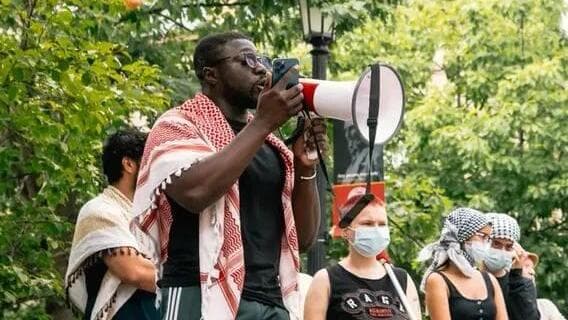The university, plagued by anti-Israel protests, has bowed to government pressure and announced sweeping changes – in exchange for the return of $400 million that was withheld from it. The university will oversee Middle Eastern studies, ban masks at protests and increase campus enforcement. In addition, the university acknowledges for the first time a decline in Jewish enrollment.o
Columbia University in New York bowed to pressure from the Trump administration and agreed last night (Friday) to a series of unprecedented steps in exchange for returning $400 million in federal grants and contracts that were denied to it . According to a statement issued by the university’s president, Prof. Katrina Armstrong, the decision was made following heavy pressure exerted by Washington on the academic institution, which in recent months has become a central arena of conflict between supporters and opponents of Israel on campuses in the United States. Among other things, the university pledged to expand its academic activities in Israel, ban the wearing of masks on campus, and indirectly monitor the content of the Department of Middle Eastern Studies.

In its statement, the university refrained from directly addressing the administration’s controversial demand to place

Anti-Zionist signs ( Photo: Michael M. Santiago / GETTY IMAGES NORTH AMERICA / AFP
In its statement, the university refrained from directly addressing the administration’s controversial demand to place the Department of Middle Eastern Studies and the Center for Palestinian Studies under academic supervision, but it announced the appointment of a new vice chancellor who will conduct a “comprehensive review” of all regional curricula, with an emphasis on the Middle East. As part of the appointment, the new vice chancellor will examine courses, conduct a review of content, faculty recruitment processes, and the process for approving new curricula. The announcement does not include a direct mention of Professor Joseph Massad, a senior lecturer and harsh critic of Israel, who was at the heart of the criticism from the Trump administration.
The university also announced a series of measures designed to tighten enforcement against violent protests and activities perceived as threatening the lives of Jewish students on campus. Among other things, it was decided to impose a ban on wearing face masks during protests – except for medical or religious reasons – following incidents in which protesters used masks to hide their identities during acts of violence on campus. In addition, students who participate in protests inside academic buildings or in areas designated for academic activity will be considered violators of university regulations and face disciplinary sanctions including suspension and expulsion from studies. The university did not indicate whether it would comply with the Trump administration’s demand for a multi-year suspension as a punishment.
Meanwhile, Columbia announced the hiring of 36 new security officers who will be given broad powers, including the ability to make arrests and forcibly remove people from campus if necessary – in contrast to the current situation, in which security officers are not allowed to confront students. The move comes after criticism from the Trump administration that the university did not take sufficient steps to prevent the riots that occurred on its grounds, including the takeover of the Hamilton Building by protesters in April 2024.
In addition, the institution announced the adoption of the definition of antisemitism formulated by the internal task force established in August 2024. This step was seen as a response to the demands of the administration, which accused Columbia of inaction in the face of antisemitic incidents on campus since October 7, 2023. The university will now require all students, faculty, and employees to complete mandatory training on discrimination and antisemitism as part of the fight against discrimination and harassment on this basis.

Columbia has also pledged to expand its academic activities in Tel Aviv: The university’s academic center in Israel is expected to launch new courses and initiatives in the second quarter of 2025. The decision is seen as an attempt to soften criticism from Israel supporters, given the oversight that will be exercised on Middle Eastern studies. In addition, the university has pledged to develop an educational program for elementary and high schools that will deal, among other things, with combating anti-Semitism and dialogue between different groups.
Institution also pledged to review its admissions policies to ensure fair processes and to examine trends in declining Jewish and African-American student enrollment. This is the first time the institution has acknowledged a decline in Jewish enrollment following campus protests. Another item included in the new measures is the adoption of a policy of institutional neutrality – a move similar to that implemented at Harvard University – that would prevent the university administration from taking public positions on controversial political issues.The university also announced that the Office of Institutional Equity will be given additional powers to oversee student organizations, including denying funding, suspending and de-recognizing groups found to be violating university regulations. The clause alludes to pro-Palestinian student organizations, and in the past the university has banned local chapters behind campus protests, such as Students for Justice in Palestine and Jewish Voice for Peace. Although the university avoided using direct language that suggests it is bowing to political pressure, it is clear that the statement was intended to signal to the Trump administration that it is meeting the conditions set for it. Reaction among the academic community ranged from support for a move designed to ensure continued federal funding to criticism that the university has abandoned its principles and succumbed to unprecedented government interference in its internal affairs. Israeli professor Gil Sussman, head of the university’s Department of Electrical and Electronic Engineering, said, “Hopefully, problems on campus will finally be resolved and we can focus on teaching, research, and patient care. I am especially pleased to see the plan to open the global center in Tel Aviv.
Israel’s Consul General in New York, Ofir Akunis, welcomed the move: “I congratulate the university for taking steps in the right direction.” He said, “From the unprecedented low of violence, hatred, and incitement in the spring of 2024, to the recent decisions, a positive change is evident. Freedom of expression is a cornerstone of any democracy – violence and riots are the opposite.”
Supported Hamas’ resistance – and faces the risk of deportation
Meanwhile, the Trump administration revoked the student visa of Momodu Tal, a 30-year-old doctoral student and leader of the pro-Palestinian protest at Cornell University, following his “calls for the destruction of the United States and his support for the Hamas resistance.” According to immigration authorities, after the October 7 attack, Tal praised the “Palestinian resistance” and called on his supporters to follow their example. His lawyers confirmed that the administration had asked him to appear before immigration authorities in Syracuse, New York, for deportation proceedings. Tal has dual British and Gambian citizenship and is the grandson of Gambia’s first president, Dawda Jawara.

His supporters claimed that he promoted open discourse and emphasized a commitment to dialogue even when there were deep differences of opinion, but immigration authorities added that he published posts against the US and Israel and claimed that “the enemy is American imperialism, and anyone the Americans see as an enemy is my friend.” It was also alleged that he told Jewish students at the Mossad that “there is no other way but the complete elimination of Zionism – physically and mentally.”This is not the first time that Tall has faced the possibility of losing his visa. He was suspended twice by Cornell last year for “disruptive protest activity,” and was told that his academic suspension could result in his visa being revoked. Tall and the university later reached an agreement allowing him to return to classes in the spring semester, but only remotely.
Conclusion : money is the best leverage there is.
